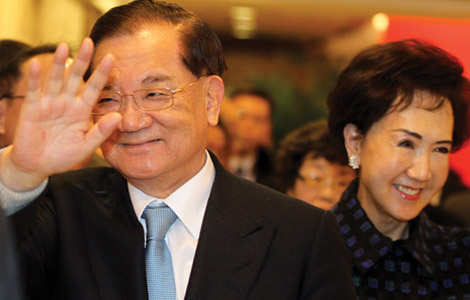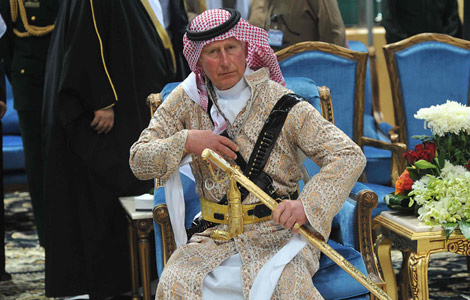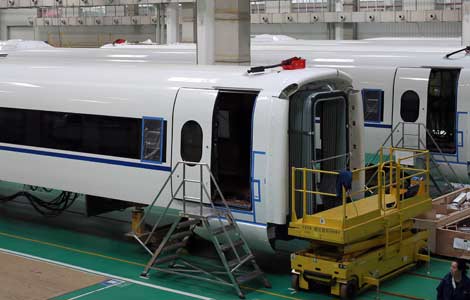2014 key to China's economic reform
Updated: 2014-02-20 22:12
(Xinhua)
|
||||||||
BEIJING - Foreign analysts say this year could be a turning point for the China as the country's leaders continue to push for reform and a rebalancing of its economy.
Since the release of the action plan for air pollution prevention and control in last September, central and local governments have started to ease surpluses in production capacity and achieved tangible results.
Some organizations said local authorities had shown determination to promote structural adjustment, with 22 provinces recently cutting their GDP growth targets, which could inevitably hinder the national economy's growth rate.
"Reform and growth have apparent contradictions, China has to sacrifice part of its growth to implement reform policies," Xu Sitao, chief representative of the Economist Group in China told Xinhua on the sidelines of a round table discussion on the economics that will affect China and the world in 2014, held in Beijing Tuesday.
"The Economist Intelligence Unit predicted that China's economy growth would slow down to 7.2 percent, not maintain 7.5 percent," he said, adding "Chinese leaders's tolerance of the slowdown demonstrated their determination for reform."
Slowing the pace was not bad, said Stephen Roach, senior fellow at Yale University's Jackson Institute for Global Affairs in an article.
With the development of the service sector, China's economy could meet more employment needs with slower economic growth, as its service sector required about 30 percent more jobs per unit of GDP than manufacturing and construction, he said.
Echoing his view, Michael Andrew, the Global Chair of KPMG, pointed out China was on track to transform from an export-oriented economy to a service and domestic demand-oriented one, which was good for both rebalancing in China's and global markets.
Zhu Haibin, JP Morgan's China chief economist, predicted China would focus its main efforts on reforms in administration, finance and the fiscal sector in 2014, saying the effect of reforms in the short term depended on both the sequence and pace of the implementation of policies.
In a word, China's economy is faced currently with weak exports, over capacity, debt risk and spillover effects from the U.S. QE tapering. However, it also enjoys mild inflation, stable employment and a clear reform strategy which provide the proper timing for reform.

 Beauty queen the latest victim in Venezuela unrest
Beauty queen the latest victim in Venezuela unrest
 Italy court finalizes Berlusconi divorce
Italy court finalizes Berlusconi divorce
 Neighbors keen to open trade corridor
Neighbors keen to open trade corridor
 Beijing wants more cross-Straits contact
Beijing wants more cross-Straits contact
 Spirit of adventure lives on in Antarctic
Spirit of adventure lives on in Antarctic
 Prince Charles dances in traditional Saudi dress
Prince Charles dances in traditional Saudi dress
 Maglev trains speeding toward greener future
Maglev trains speeding toward greener future
 Building collapse at Korean resort kills 10
Building collapse at Korean resort kills 10
Most Viewed
Editor's Picks

|

|

|

|

|

|
Today's Top News
Facebook to buy WhatsApp for $19b
Harvard gets $150m from billionaire
Afghan war opposition peaks: Gallup
Obama criticizes Venezuelan govt
Beijing opposes Japan's Taiwan ambitions
China to debut new stealth jet
West readies Ukraine sanctions
President Xi made cartoon debut
US Weekly

|

|






